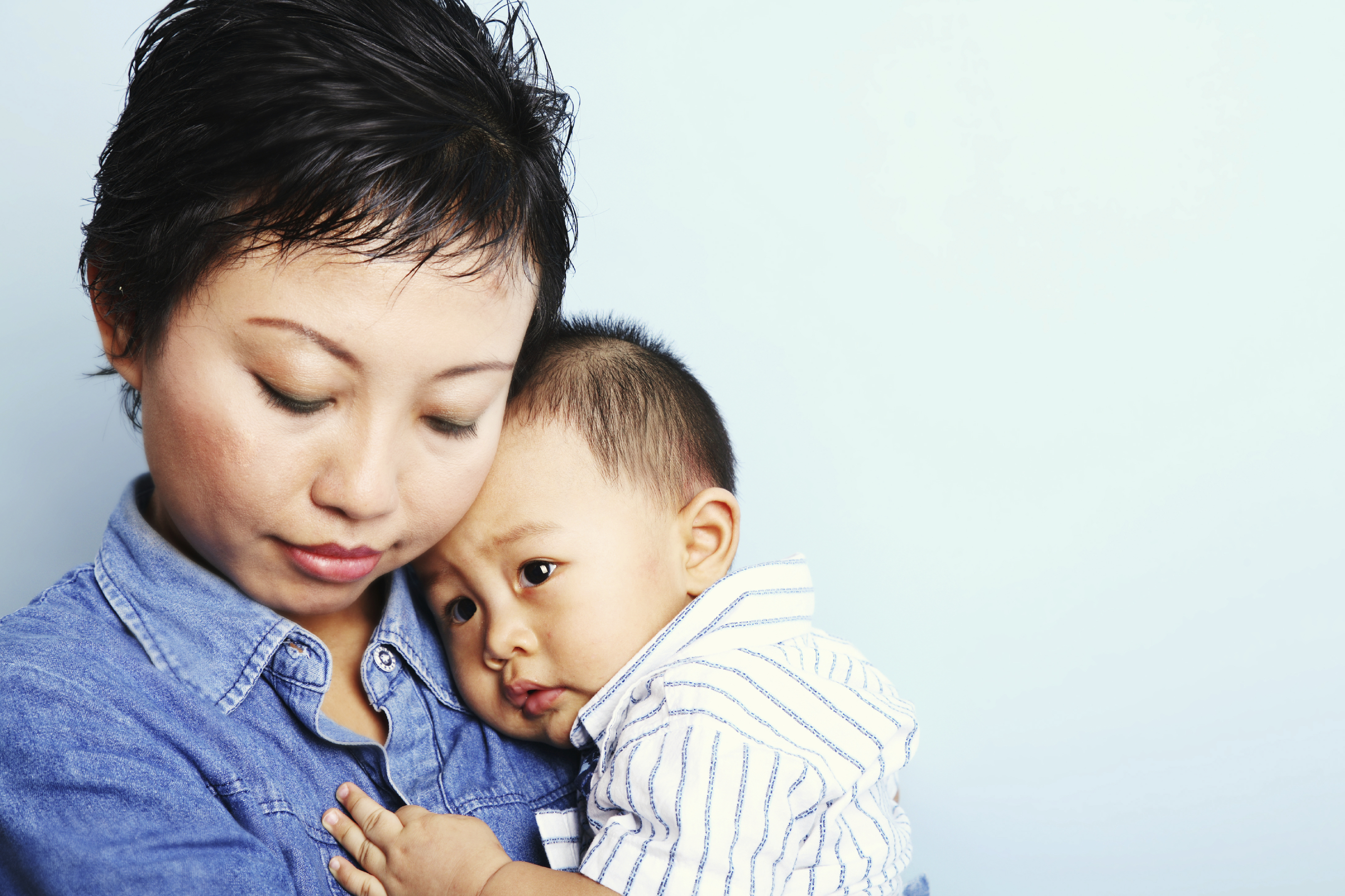Beyond the Blues—Help for Postpartum Depression | by

Sadness. Anxiety. Irritability. Disappointment. Guilt.
These are not the feelings we typically associate with the birth of a baby. When you’re a new mom, you’re expected to glow with pride, cherish your new role, and be head-over-heels in love with your baby. However, feeling sad or depressed after birth is not uncommon.
Feeling Blue
Shortly after giving birth, many women are surprised to find themselves feeling weepy and sad. According to the American Congress of Obstetricians and Gynecologists (ACOG), 70 to 80 percent of postpartum women experience “baby blues.” “The physical reality of rapid hormonal and thyroid changes that occur after giving birth can throw some women into depression,” explains Cheryl Buddington, LCSW, who is part of the Arapahoe/Douglas Mental Health Network.
Most cases of baby blues are transitory and do not require treatment. The feelings of sadness typically dissipate once hormones settle back to normal, usually after two to three weeks. However, sleep deprivation can exaggerate the symptoms, so new moms should try to get as much rest as possible.
When the Cloud Won’t Lift
If the sadness doesn’t go away or gets worse, it could be postpartum depression (PPD). According to ACOG, up to 10 percent of women experience PPD, although the numbers could be higher since some women do not seek help and receive the proper diagnosis.
“PPD can happen to anyone,” says Dr. David Wagar, who practices at RidgeGate OB/GYN in Lonetree. “Women who are at particular risk are those who have had PPD before or who have been previously diagnosed with depression, anxiety, or another significant life stressor.”
PPD can last anywhere from a few weeks to several months and usually requires some form of treatment, such as medication, therapy, or a combination of both.
“Many women find that understanding the causes of depression, learning skills to help cope, and making changes in their environment can provide the support they need to work through their depression,” Buddington says. She adds that antidepressants and hormone therapy can help with more severe symptoms. And, Buddington says, “An honest conversation with your doctor can help alleviate fears about side effects and nursing.”
Getting Help
Admitting that there is something wrong is half the battle. Many women are embarrassed or scared to admit how they are feeling. “Our society in general is often not comfortable with mental-health issues,” Wagar says. “New mothers in particular put on themselves many expectations about what they should be like and what a ‘good mom’ does.”
Traci Smith* of Parker knows how hard it is to ask for help. After the birth of her first daughter, she endured several weeks of depression before letting her husband or her doctor know how she was feeling. “When you’re in the middle of depression, it’s hard to grasp reality and understand what is actually going on,” Smith says. “When we feel unsure about ourselves, the last thing that feels right is to open up and make yourself vulnerable.”
Smith’s advice to new moms who suspect they have PPD is to talk, to tell someone what they are feeling. Most importantly, Smith says, “Lean on family and friends for support and help. The only thing to be embarrassed about when you have an illness is not asking for help.”
Education—The First Line of Defense
Most obstetricians, pediatricians, childbirth educators, and labor and delivery nurses now make it a point to talk about PPD. Making both mom and her partner aware of the symptoms (even before the baby is born) can have a huge impact on early intervention. And, as Wagar emphasizes, “PPD is easily treated once it is recognized.”
Smith offers some words of advice for spouses and partners: “Do not say, ‘You are acting crazy.’ Lovingly suggest that things may be more difficult than they should be, and recommend professional help, which can be accessed through your OB/GYN.” She also recommends giving “lots of hugs and praise.”
(*Name changed by request)
Symptoms of Baby Blues
• Mood instability
• Weepiness
• Sadness
• Anxiety
• Lack of concentration
• Feelings of dependency
Symptoms of PPD
• Weepiness or sadness that persists all day
• Diminished interest in almost all activities
• Insomnia
• Change in appetite
• Anxiety
• Panic attacks
• Moodiness & irritability
• Excessive guilt
• Difficulty concentrating
• Suicidal thoughts
Tags: Anxiety, Arapahoe/Douglas Mental Health Network, Cheryl Buddington, Help for Postpartum Depression, Irritability, Sadness
Leave a Comment
Please be respectful while leaving comments. All comments are subject to removal by the moderator.
